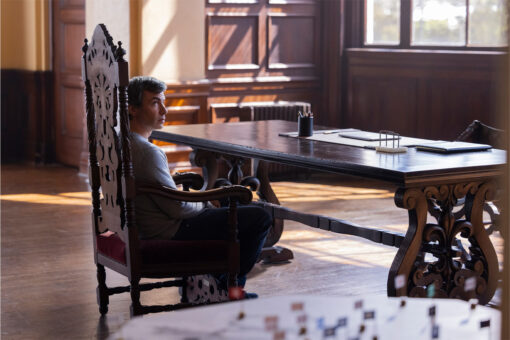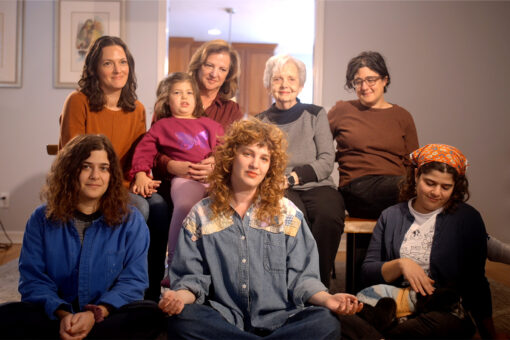I’ve never been a very observant Jew, but this year has changed my perspective on the need for some form of ritual in my life. My mental health has been on a roller coaster since the beginning of the Trump administration. My feelings reached a boiling point during the Kavanaugh judicial hearings. As a survivor of sexual assault, listening to Christine Blasey Ford get attacked and doubted by so many people triggered my anxiety and depression in a completely new way.
I’m so fortunate to have a supportive group of family and friends as well as access to good medical care. But sometimes, even the help of medical professionals, friends, and family aren’t enough.
So I decided to try a mikveh. For those who are unfamiliar, a mikveh is a ritual bath. It’s the OG form of baptism. Traditionally a mikveh is associated with the Biblical laws governing menstruation, called niddah. Traditionally, women go to the mikveh after their periods end to “cleanse.” After, they can be intimate with their husbands for the next two weeks of the month. For the duration of a menstrual period as well as the following week women, revert back to an “impure” state.
Many feminist Jews take issue with this practice because it is predicated on the belief that menstruation is dirty. But these days, Jews everywhere are creating other ritual uses for the mikveh that have nothing to do with menstruation. These uses include everything from marking a graduation to an important birthday.
I wanted to use the mikveh to signify a new start.
Surviving sexual assault created a lot of issues for me, including a complicated relationship with my body and body image. The Kavanaugh hearings dredged up all of these complicated feelings and put them on steroids. I kept harkening back to the aftermath of my own assault and feeling doubted and shamed for something I had no control over. I kept remembering how it felt to be forced into silence because it was more important to protect the reputations of the white male perpetrators. The anger, sadness, and frustration ate away at me. It felt impossible to rein in.
I needed to reset how my body and my mind were handling all of the craziness in the world or I would drive myself crazy. The mikveh seemed like the perfect marriage of a physical as well as spiritual cleansing.
Having never been to a mikveh before, I tried to learn as much as I could about what to expect before going. Multiple websites told me that you wash yourself very thoroughly and then you are inspected by a mikveh attendant to ensure absolutely nothing is in between you and God when you immerse. I was very intimidated by the idea of an Orthodox woman inspecting my level of cleanliness. Since I was raised Reconstructionist and my mother was not raised Jewish, I was scared they would not consider me “Jewish enough” to participate.
The mikveh volunteer, who I will call Sarah, explained in an email that my local mikveh is open to everyone. Their commitment to inclusivity helped greatly, but it didn’t stop me from feeling moments of sheer panic. But I refused to let my anxiety get in the way of the experience. I told myself it would be like a much more religious version of going to the gynecologist. But instead of checking my reproductive health, this woman would be evaluating if I was clean enough to stand before God (no pressure).
The night of my appointment I was a nervous wreck. I wanted to arrive ready to immerse, so I cleaned myself at home in a way that I don’t know I ever have. I paid attention to parts of my body I never really appreciated before: the crevices between my toes, my belly button, the back of my neck. I kept wondering about the actual prayers I was supposed to say. Is there a prayer for shaving your legs? Would God mind that my eyebrows weren’t perfectly groomed? But for once, I valued my body. I gave it the attention it deserved, and I felt proud of myself for taking care of it.
When I arrived at the mikveh I was greeted at the door by Sarah, who immediately sensed my anxiety. She knew this was my first experience at a mikveh and did so much to make me feel comfortable. I said I was concerned that I would not know the right prayers to say; she told me not to worry about it. Most importantly she said she did not need to do a close inspection. My wet hair served as proof that I took the cleanliness requirements seriously. She showed me the mikveh and the changing room and told me to take as much time as I needed. In the changing room I showered one last time. There was checklist on the mirror to make sure you were completely ready. I flossed my teeth. I blew my nose. I cleaned my ears again. I put on a pink fuzzy bath robe and walked to the mikveh.
The water felt warm and welcoming against my skin. There was a large placard facing the pool with the prayers in Hebrew and phonetically spelled out in English. I felt an immediate sense of calm just by being in the water. I said the prayers and immersed myself. I stood up and felt a sense of ease I haven’t felt in years. I don’t know if I would call it God, but something told me to keep going. I prayed and immersed myself another two times. Each time I felt this feeling of calm literally wash over me. I felt safe and capable in my own skin, a feeling I have tried to feel for years. It was as if I was being welcomed to a place I never knew I had in my own mind.
I was stunned by how emotional I felt. I felt physically different, like a weight had been lifted. After I dressed I sat and had a long talk with Sarah. She was incredibly kind and even offered to host me for a Shabbat dinner.
Then I went home and cried my eyes out. My whole system understood I needed to release all of these horrible feelings I’ve been carrying around. But in the end I felt so good.
Survivors of sexual assault carry so much shame. We need to be reminded of our value again and again. Going to the mikveh made me to realize how much I value my own body. How much I need to treasure it and not take it for granted. Living without self respect is not living well. The mikveh made me feel worthy and powerful and capable. Whether or not it is in keeping with traditional Jewish law, the mikveh is a new ritual to help me take back my own power. I will keep going to strengthen my sense of worth. As it says in Psalm 139, I am fearfully and wonderfully made.
Header Image via Tuttotonno on giphy.



